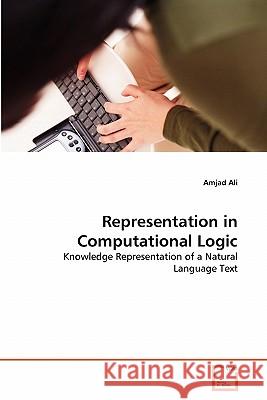Representation in Computational Logic » książka
Representation in Computational Logic
ISBN-13: 9783639330175 / Angielski / Miękka / 2011 / 104 str.
In Artificial Intelligence knowledge representation is a combination of data structures and interpretive procedures that leads to knowledgeable behavior. It is required to investigate such knowledge representation technique in which knowledge can be easily represented in computer. This book compares various knowledge representation techniques and proves that predicate logic is more efficient and accurate knowledge representation scheme. The algorithm presented in this book splits the English text into phrases/constituents and then represents these in predicate logic. Another algorithm splits the Urdu text into phrases/constituents and then represents these in predicate logic. These algorithms also regenerate the original sentences from the representation in order to check the accuracy of representation. These algorithms have been tested on real text of English and Urdu. As the algorithms work on pre-tagged input files, so if the tagging is done correctly then these algorithms achieve high level of accurately. Therefore it is required that there should be proper rules with the help of which one can correctly tag the input text into phrases/constituents.











